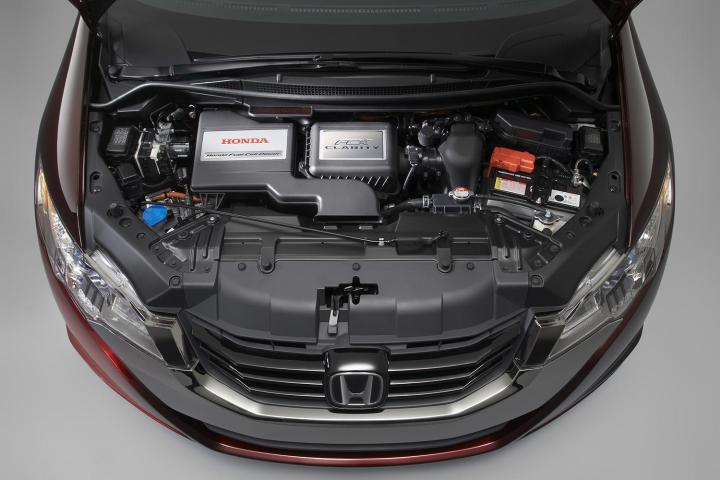
The two carmakers hope that pooling their resources will lower the considerable cost of manufacturing fuel cells, an anonymous Honda official told Japan’s The Asahi Shimbun. GM and Honda will still pursue development of fuel cell vehicles on independently, the report said.
The American and Japanese company first announced a partnership in 2013, with the stated intention of developing lower-cost, commercially viable fuel cell components by 2020. More recently, there have also been rumors that the two companies will collaborate on plug-in hybrid powertrains. Neither company has confirmed the fuel cell factory or plug-in hybrid deals.
Honda will launch its 2017 Clarity Fuel Cell in Japan this spring, and in the U.S. later in the year. The sleek sedan was unveiled at the 2015 Tokyo Motor Show last fall, and U.S. sales will be limited to California due to lack of fueling infrastructure elsewhere. GM has no short-term plans for a production fuel cell car, but it has a fleet of converted Chevrolet Equinox test mules that have collectively logged over 3 million miles.
Carmakers are eager to partner on fuel-cell development because of the inherently higher cost of this technology. Fuel cell stacks use expensive metals, and for the time being low production volumes make economies of scale hard to achieve. Honda will likely sell only a few hundred Clarity Fuel Cells per year, while rival Toyota plans to deliver just 3,000 copies of its Mirai sedan in the U.S. between now and 2017.
That’s why carmakers are banding together. In addition to the existing GM-Honda partnership, Toyota is sharing fuel cell technology with BMW in an agreement that may also produce a new sports car platform for the two companies. Mercedes-Benz parent Daimler is also collaborating with Ford and Nissan on fuel cells.


